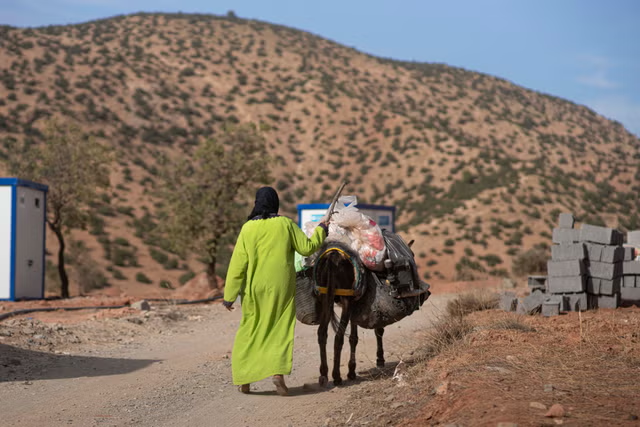Thousands of women’s rights campaigners took to the streets across Iraq to protest legislation that could potentially legalise child marriage.
The demonstrations, organised by Coalition 188 - a group of NGOs, politicians and activists - were held in major cities including Baghdad, Basra, Kirkuk and Najaf.
The coalition opposes changes to the country’s Personal Status Law, first passed in 1959, which governs family matters such as marriage, divorce and inheritance.
In Baghdad's Tahrir Square, around 500 protesters, both men and women, carried banners with slogans such as "There is no Quranic verse that takes custody away from the mother" and "No marriage of minors".
The bill, if passed, would allow citizens to choose between religious authorities or civil courts for matters related to family affairs, a move critics argue could significantly erode women's rights.
One of the most contentious aspects of the proposed changes is the potential impact on the minimum marriage age for Muslim girls.
While supporters of the bill deny these claims, opponents fear it could effectively abolish the current minimum age of 18, which was established by the 1959 Personal Status Law.
The United Nations children's agency, UNICEF, reports that child marriage is already a significant issue in Iraq, with 28 percent of girls married before their 18th birthday.
Sarah Sanbar, a researcher at Human Rights Watch (HRW), strongly criticised the proposed changes, saying: "Passing this law would show a country moving backwards, not forwards."
Read More
Her comments reflect the wider concern among human rights organisations that the amendments could reverse decades of progress in women's rights in Iraq.
The changes to the law have been heavily promoted by the Coordination Framework, a coalition of conservative Shia parties that currently form the largest bloc in the Iraqi parliament.
Critics argue that these amendments could potentially roll back women's rights and introduce sectarian elements into family law.
Inas Jabbar, a board member of the Iraqi Women Network and a member of Coalition 188, told reporters that the protesters were united in their opposition to any changes that could infringe on women's rights or put children at risk.
Amal Kabashi, from the Iraq Women's Network advocacy group, said the amendment "provides huge leeway for male dominance over family issues" in an already conservative society.
The 1959 legislation passed shortly after the fall of the Iraqi monarchy and transferred the right to decide on family affairs from religious authorities to the state and its judiciary.
This looks set to be weakened under the amendment, backed by conservative Shiite Muslim deputies, that would allow the enforcement of religious rules, particularly Shiite and Sunni Muslim.
There is no mention of other religions or sects which belong to Iraq's diverse population.
In July, parliament withdrew the proposed changes after many lawmakers objected to them.
However, they resurfaced in an August 4 session after receiving the support of powerful Shiite blocs which dominate the chamber.
Disclaimer: The copyright of this article belongs to the original author. Reposting this article is solely for the purpose of information dissemination and does not constitute any investment advice. If there is any infringement, please contact us immediately. We will make corrections or deletions as necessary. Thank you.



